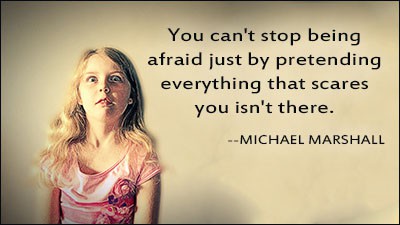Can You Overcome Social Anxiety? 3 Tips To Help You To Overcome It

Acording to Psychologist/Director from the Social Anxiety Institute, social anxiety is the fear of being judged and evaluated negatively by other people, leading to feelings of inadequacy, inferiority, self-consciousness, embarrassment, humiliation, and depression. If a person usually becomes (irrationally) anxious in social situations, but seems better when they are alone, then “social anxiety” may be the problem.
What triggers social anxiety? Some trigger of social anxiety are conversations with extrangers, dating, meeting new people, being asked to speak in front of people, parties, family gathering.
They’re simply not going to understand the sensations one feels or the abject paranoia inherent in certain scenarios.
In fact, for the person who routinely suffers from social anxiety life can feel like an endless string of nervous encounters and disappointments. In more severe cases a person might even completely shut themselves off from the world at a large and become classically agoraphobic.
Do you have social anxiety? Here are some symptoms you might experience if you have social anxiety. Intense worry for days, weeks or even months before a social event, extreme fear of being judged by others, fear that others will notice you are nervous, red face, shortness of breath, blushing, nausea, sweating or hot flashes, faint, racing heart, staying quiet or hiding, avoiding social situations, drinking before social situations to smoothe your nerves.
How It Affects Your Life
According to WebMed, social anxiety disorder prevents you from living your life. You’ll avoid situations that most people consider “normal.” When you avoid all or most social situations, itcan also lead to:
- Low self-esteem
- Negative thoughts
- Depresion
- Sensitivity to criticism
- Poor social skills that don’t improve
Assuming that you are an individual who routinely deals with social anxiety issues – we present 3 tips to help you learn to manage your fears / problems so that you can get on with your life…
Tip # 1: Develop a comfort zone and build upon it
If you find that you have serious issues when it comes to entering into and dealing with even basic social situations then the best course of action is to start small and build up “comfort zone”.
No one is saying that you need to jump out into the world and forcefully put yourself out there, but that you could instead find one or two locations which you feel rather at home in and work your way out from there. Maybe it’s a café or some kind of shop that a friend owns? It really doesn’t matter; by starting off as a regular patron to some establishment you will (typically by default) begin to make friends with the people that work there.
The same line of thinking can also apply to lots of other instances as well. For instance, one of the more common approaches involves joining a support group, which would be filled up with people just like yourself. By engaging them you can often forge great long-term relationships which are mutually beneficial. Often times we develop a sense of isolation, insecurity or inadequacy because we have no colleagues; well, a support group will take care of that, doesn’t it?
Tip # 2: Don’t let your imagination run wild
More often than not social anxiety takes root in the mind long before any type of social situation has even begun to manifest itself. An afflicted individual will creatively imagine all the ways they might be embarrassed even though nothing has happened or will. In turn, this negative thinking makes the person begin to act in ways that they normally wouldn’t had they just opted to not think about it at all. Yes, it sounds almost too good to be true, or even bordering on zen-like zeal, but perhaps one of the best approaches is to just not constantly think about everything.
Tip # 3: So you’re not perfect – so what?
Lastly, we have the idea of self-perfection – where a social anxious person feels as though they’re “not perfect” and thusly not deserving of friends or even respect. Believe it or not this sort of thing is more common than you’d think and tends to plague a lot of people’s subconscious minds. Instead of dwelling on those personal aspects which you feel to be lacking simply realize that no one is perfect. Even though there are ads, programs, and all sorts of media tidbits trying to convince you (at all times) that physical and mental perfection is indeed a real thing, be aware that it’s all actually just hype.
Conclusion
Always remember that overcoming social anxiety takes time. No matter what changes you make in your life, you will not go from socially anxious to social butterfly overnight.
Write down any small progress that you make; every journey begins with small steps and it is important for you to get started and not worry too much about your goal now. Focus on the journey and not your destination, and soon you will realize that you have overcome or feel better about social anxiety.
Supplements aren’t meant to replace prescribed medication or other doctor-approved therapies. However, you can use them as an addition to help you out.
Before you take this supplement you have to consult your doctor because you have to consider your age, upcoming surgery, pregnancy, or other underlying health conditions . You should always check with your doctor before adding supplements to your routine. Some suggestions of herbal remedies are as follows:
- Ashwagandha
- Chamomile
- Kava Kava
- Lemon balm
- St John’s Wort
- Valerian
Check amazon for Herbal Remedies







